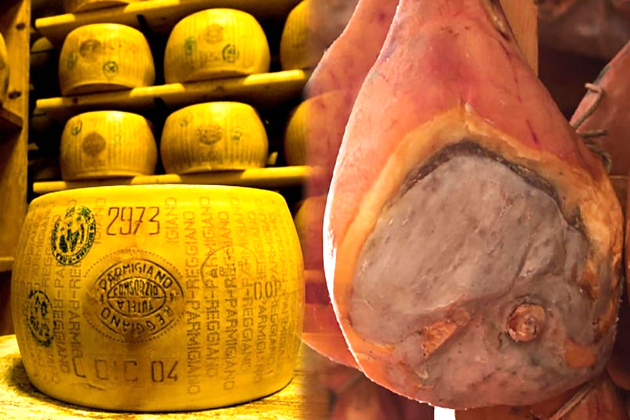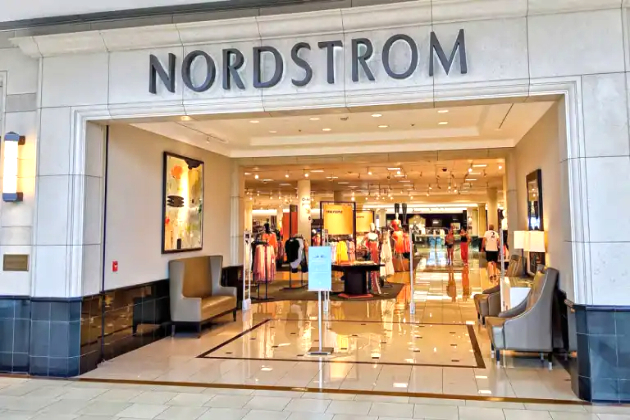'Chinese and chips': a brief history of the British Chinese takeaway
The Conversation
25 May 2023, 18:09 GMT+10

"I've never been so disgusted in my life." Such was one Twitter user's response to a recent video showcasing the spoils of a British Chinese takeaway order. "British Chinese" was trending on social media as American users analysed and criticised the cuisine, apparently bewildered by the "inauthentic" inclusion of chips or thick curry sauce.
British consumers and producers of Chinese food alike proudly showcased their takeaways in retaliation. Posters on either side of the debate sought to deem their version of Chinese food "authentic" or "traditional", revealing the powerful connotations of these two words and their connection to culinary identity.
There is no hard definition for what makes food authentic or traditional. Instead, food goes through a process of authentication. A dish once considered novel or adaptive can form a strong identity over time, eventually becoming traditional in its own right.
Chinese food is a perfect example of this. It has always been produced in ways that blur both national boundaries and the borders between ethnic cuisines.
The history of Chinese food both in China and across the world serves as a rich record of trade, migration and colonialism. Many citizens of former British colonies such as Malaysia and Hong Kong who migrated to the UK started working in the food sector. From the 1950s onwards, they began renting vacant fish and chip shops in small towns and villages.
In rural areas, these businesses were often one of few takeaway options available. Using the facilities on hand, they added a variety of dishes to their menu to cater to those more used to fish and chips fare.
Roux-like curry sauces were included in Chinese takeaways for many of the same reasons. Indo-Pakistani inspired curries from another colonial migratory flow were the other major source of "non-British" takeaway foods at the time.
Stand-up comedian Pierre Novellie defines British cuisine with one word - "wet". There's truth to his observation. It's amazing how migrants have adapted and shaped the British love of thick sauces and no-fuss takeaways to suit their own businesses.
Chinese takeaways around the world
In Australia, Chinese takeaways date back to the 1850s, when Chinese cookhouses and greengrocers provided for gold miners in remote parts of the country. Today, it's common for Australians to joke that a town is not a town without a pub and a Chinese takeaway (often being the same establishment).
As Jan O'Connell, author of A Timeline of Australian Food notes, Australian Chinese food reflects a complex history of pro and anti-immigration policies.
Cantonese-inspired "sizzling honey prawns" and chunky Australian variations of "Mongolian beef" are considered staples of the modern Aussie diet. Where British Chinese food is brown and gravy laden, Australian varieties favour sweet flavours and bright colours.
Legacies of colonialism have shaped other Asian cuisines too. Japanese dishes that have become popular in the US, UK and Australia - such as ramen noodles and gyoza dumplings - are a product of the movements of people, foodstuffs and ideas across national borders.
In Slurp, a history of ramen, cultural historian Barak Kushner traces how movements between China and Japan shaped the rise of ramen and gyoza.
Chinese noodle varieties - often but not always made by migrants in port cities such as Yokohama - popularised the consumption of wheat-based noodles in Japan. The terms "ramen" and "gyoza" sound very much like the Japanese pronunciation of the northern Chinese foods lamian and jiaozi, although Kushner disputes the direct connection between the two terms.
After the second world war, many Japanese soldiers and farmers that had been stationed in occupied China returned home. There, some opened local Chinese restaurants with dishes inspired by their time in China.
British troops stationed in Japan as part of occupation forces in the same postwar period introduced local chefs to curry powder and roux-like sauces. Today's popular Katsu curry sauce shares common ancestry in many ways with the British Chinese takeaway.
It's clear from the recent social media trends around British Chinese food that the cuisine holds unique importance in different local identities. Cuisines go through stages of innovation, adaptation and localisation, becoming considered authentic or traditional in the process.
The passionate defence of British Chinese food on TikTok shows how important the humble takeaway is today and the contribution of Chinese migration to British identity.
Authors: Jamie Coates - Senior Lecturer in East Asian Studies, University of Sheffield | Niamh Calway - DPhil candidate, Faculty of Asian and Middle Eastern Studies, University of Oxford 
 Share
Share
 Tweet
Tweet
 Share
Share
 Flip
Flip
 Email
Email
Watch latest videos
Subscribe and Follow
Get a daily dose of Hong Kong Herald news through our daily email, its complimentary and keeps you fully up to date with world and business news as well.
News RELEASES
Publish news of your business, community or sports group, personnel appointments, major event and more by submitting a news release to Hong Kong Herald.
More InformationChina
SectionUS tariffs threaten Italy’s farm exports, from Prosecco to Parma ham
ROME, Italy: Italy's agricultural sector is bracing for a major hit as U.S. tariffs threaten exports of iconic products like Prosecco...
China’s factory slump continues, raising stimulus calls
BEIJING, China: China's manufacturing sector is expected to shrink for a second consecutive month in February, signaling continued...
Chinese nationals accused of hacking US government, newspapers to get data on dissidents
(CN) - The Justice Department announced Wednesday indictments against a dozen Chinese nationals, claiming they worked to steal data...
Manipur Police seize arms, explosives in ongoing security operations
Imphal (Manipur) [India], March 9 (ANI): In a series of search operations across Manipur, police recovered weapons, ammunition, explosives,...
China heightens military activity around Taiwan
Taipei [Taiwan], March 9 (ANI): Taiwan's Ministry of National Defence (MND) reported nine sorties of People's Liberation Army (PLA)...
SWITZERLAND-GENEVA-UN OFFICIAL-INTERVIEW
(250309) -- GENEVA, March 9, 2025 (Xinhua) -- Nahla Haidar, chair of the UN Committee on the Elimination of Discrimination against...
Business
SectionUFC-WWE parent TKO Group enters boxing with Saudi partnership
NEW YORK CITY, New York: TKO Group, the parent company of UFC and WWE, is launching a new boxing promotion in partnership with Saudi...
Reynolds Wrap faces lawsuit over false 'Made in USA' claim.
NEW YORK CITY, New York: The company that makes Reynolds Wrap aluminum foil is facing a lawsuit for allegedly misleading consumers...
Piaggio hits record profit margins in 2024 despite economic challenges
PONTEDERA, Italy: Italy's Piaggio, the maker of the iconic Vespa scooter, reported record-high core profit margins for 2024 despite...
Wall Street climbs wall of worry over trade tariffs
NEW YORK, New York - U.S. stocks fell sharply at the open and stayed in the red for much of the day Friday, however as the day wore...
Euro jumps to highest level since 2009 as U.S. dollar sinks
NEW YORK, New York - The U.S. dollar continued to come under pressure Friday with President Donald Trump's flip flops on trade tariffs,...
Nordstrom beats holiday sales forecasts, CFO departs for Starbucks
SEATTLE, Washington: Nordstrom delivered stronger-than-expected holiday-quarter sales and announced a leadership shakeup, with Chief...












